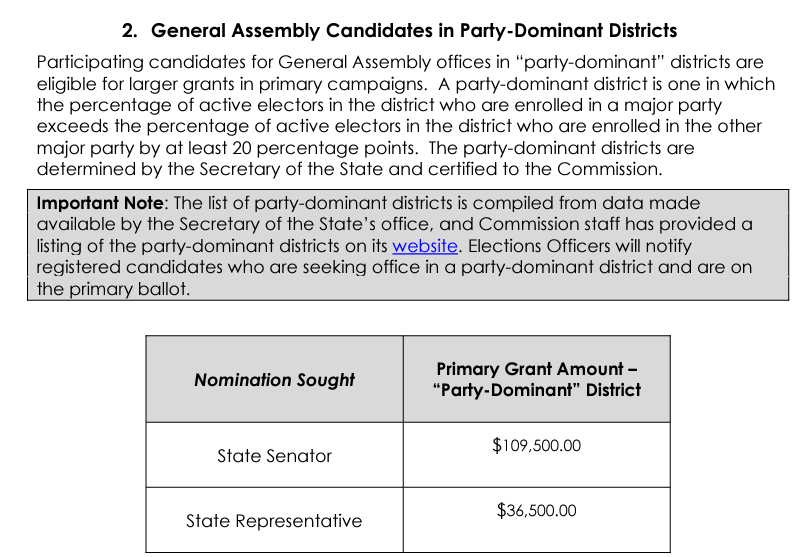The State Elections Enforcement Commission has published its voter guide for candidates participating in the voluntary Citizens Elections Program of publicly funded races which includes contribution limits and restrictions.
The program was created to limit the influence of money in elections. The maximum personal contribution to general assembly races is $320. For non-participating candidates it’s $1,000 and $250 respectively.

Participating candidates must reach a threshold of lower donations to trigger the public grant. For instance both of Bridgeport’s senate districts represented by Marilyn Moore and Herron Gaston are party dominant allowing for larger-grant eligibility.
Gaston could face a challenge from City Councilman Ernie Newton who represented Connecticut’s 23rd Senatorial 20 years ago prior to resigning following his conviction on public corruption charges. Candidates who were convicted as a result of public positions are ineligible to participate in the program so if Newton formally announces a run he must raise money the old-fashioned way with the $1,000 personal contribution limit to compete with the $109,500 public grant should Gaston qualify.
The extended mayoral cycle created a pause in a number of state campaigns locally as well as stymieing interest in town committee primaries. This is the first time in decades that no town committee primaries took place.


So if Mrs. Newton run’s for the state senate also, and participate in the program, then gifts her grant over to Ernie and drops out, is that legal ?
asking for a friend.
Nope